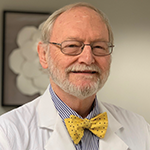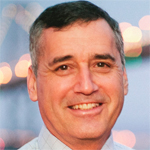I admired Dr. Lightfoot for many reasons but, as a resident, I found the most striking thing about him was his exceptional diagnostic reasoning skills. When faced with a difficult decision, he logically recapitulated all the options. He then weighed them and navigated through the uncertainty. Sometimes, by illustrating all the options, he illustrated how the decision was moot to begin with. As a resident physician, I found the efficiency with which he made diagnoses and initiated treatments a thing of beauty. Patients who were sedated in the intensive care unit with an uncertain diagnosis were, within the course of the week, on their way to recovery.
One thing he emphasized was that his knowledge didn’t drop from the sky. He was always reading and absorbing information, committing himself to growth at every single opportunity. Despite his braininess, his questions always came from a place of immense humility. When on rounds, he was always curious about patients and the totality of their lives. He asked unexpected questions. My co-residents relayed stories about interviews in which he posed such questions as, “What are these walls made out of? How would you know?” and “If a cat dropped in a forest, you think it would make a sound?” These eccentric questions often led to answers that questioned the roots of our beliefs. (Answers: The walls were made of tobacco—the cash crop of the upper South during the 19th century; if a cat drops in the forest, you shouldn’t be listening for sounds but running away.) For conversations like these, even after I left Kentucky for fellowship in Iowa, I always enjoyed seeing him at ACR Convergence.
I was anticipating seeing Dr. Lightfoot again in Philadelphia at ACR Convergence 2022. But it was not possible. I learned that Dr. Lightfoot passed away only a few days before the meeting. Apparently, he was teaching medical students and resident physicians from his bedside as a patient. It saddened me to hear of his passing, but I was comforted to know he maximized every moment to educate the world.
Pay It Forward
These are only four of the many mentors who instilled in me a sense of great fortune, gratitude and pride. At the same time, I recognize that I am not unique in having such mentors. If you look at your own experiences, I am sure you will find mentors of equal caliber who cared deeply about your well-being and your life. Juxtaposing that to the finality of death seems so jarring. But reconciling this dissonance is vital. We immortalize our mentors in the important work we do. We further their legacies when we affirm the lessons they have imparted. The burden of upholding their expectations may seem very high. Yet it is dwarfed when we look at their own careers. After all, they were mentees at some point, too. They were passing on knowledge and wisdom in a chain that appears to have neither a beginning nor an end.


